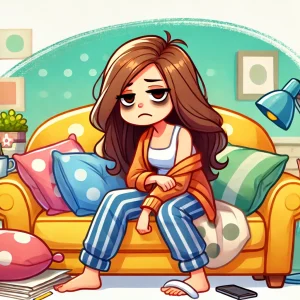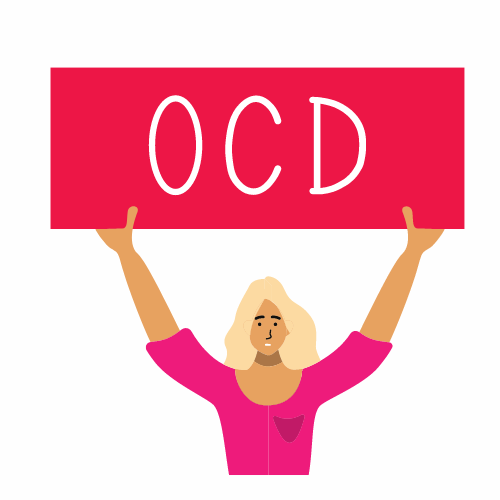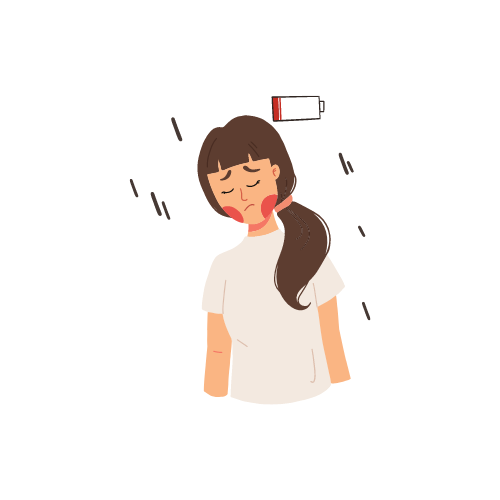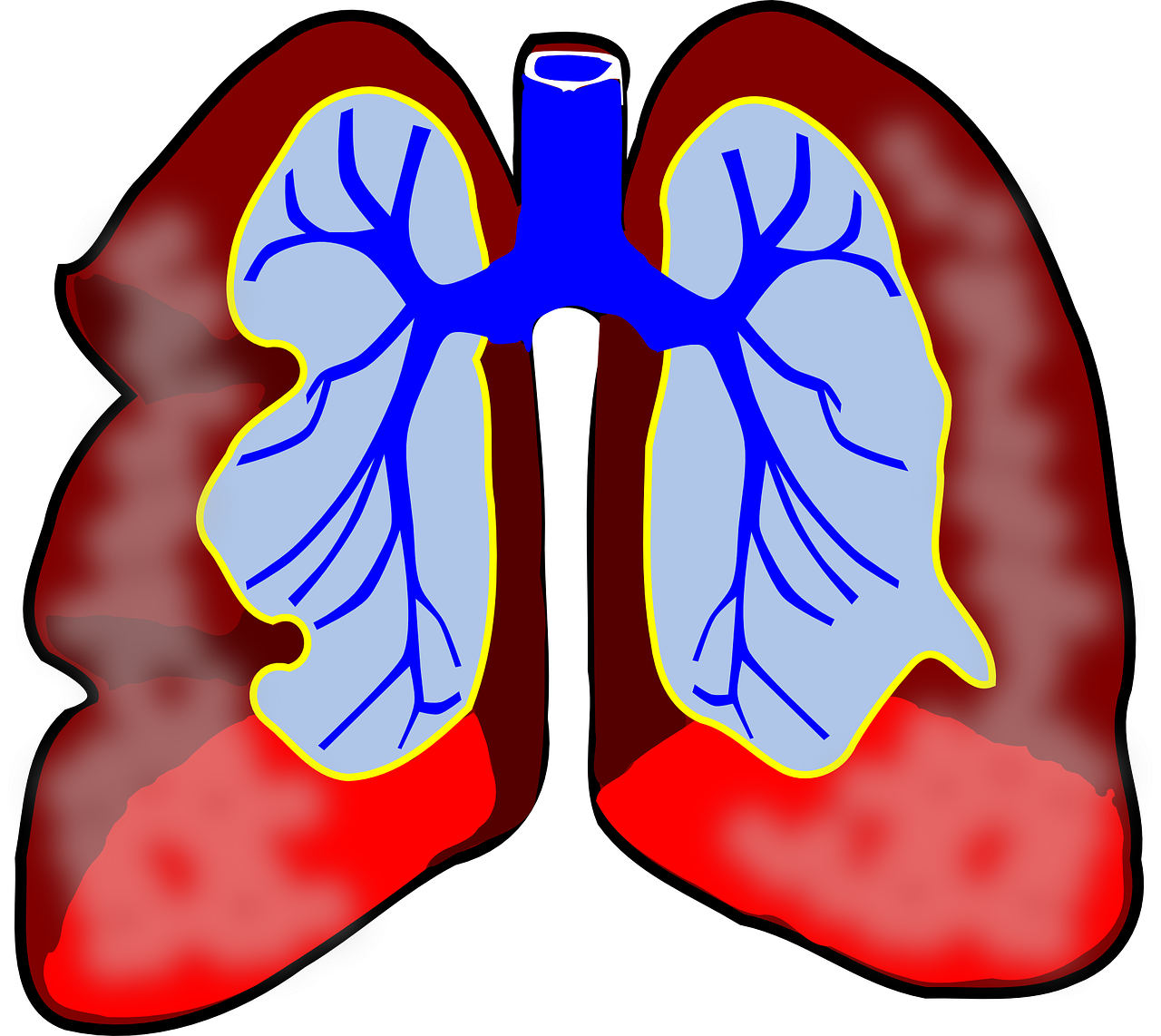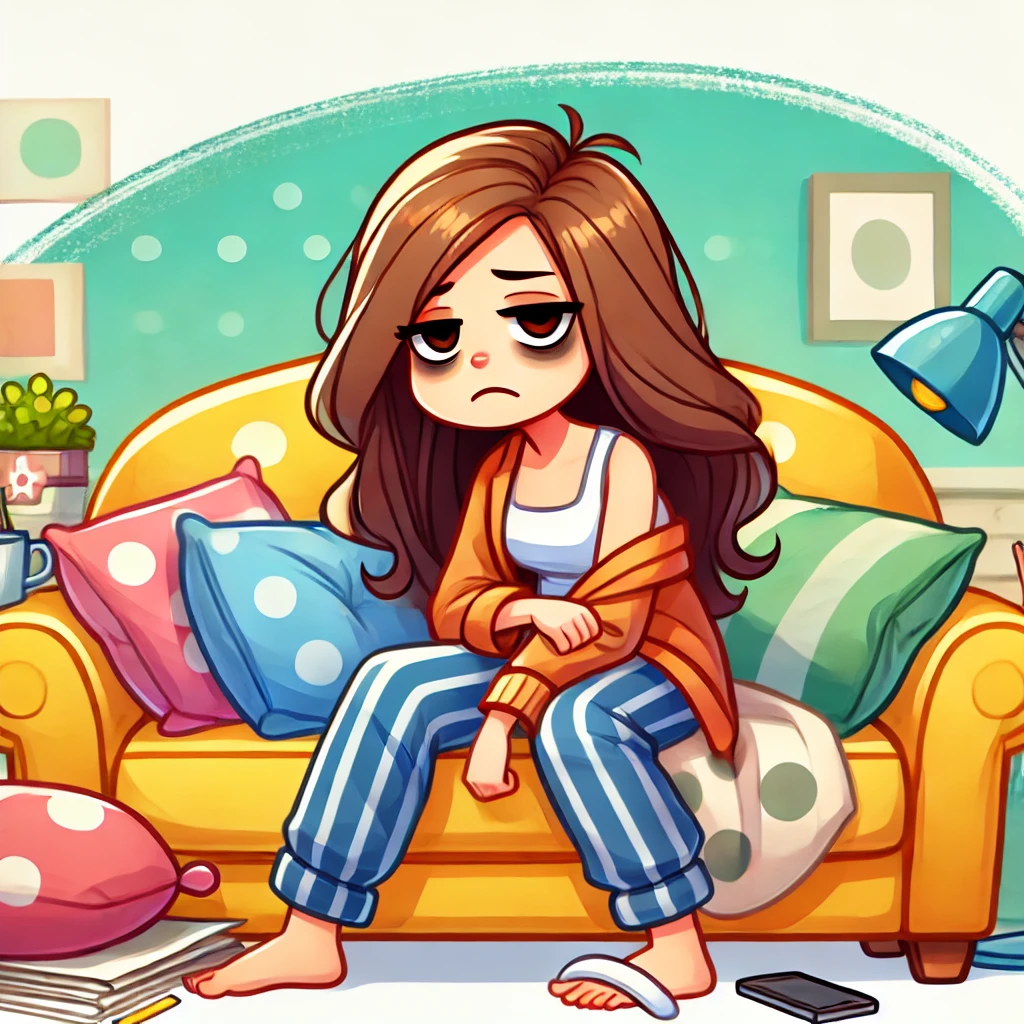
The Impact of Having Both ADHD and OCD on Mental Health
Living with ADHD or OCD can be challenging on its own, but when both conditions co-exist, the impact on mental health can be profound. For women who experience both, the symptoms often amplify one another, creating a unique set of struggles that can make daily life feel overwhelming.
ADHD in women often manifests differently than in men, leading to frequent misdiagnosis or underdiagnosis. Women with ADHD may struggle with maintaining focus, managing time, and controlling impulses. Adding OCD to the mix can intensify these challenges. The intrusive thoughts and compulsive behaviors associated with OCD can exacerbate the chaos caused by ADHD, creating a vicious cycle of anxiety, guilt, and shame that can spiral into depression and hopelessness.
The Role of Emotional Regulation and Sensory Issues
One of the most overlooked aspects of living with both ADHD and OCD is the struggle with emotional regulation. ADHD often makes it difficult to manage intense emotions, and when combined with the anxiety-driven compulsions of OCD, emotional outbursts or internalized stress can become overwhelming. Sensory sensitivities, common in individuals with ADHD, can further complicate this picture. Loud noises, bright lights, or even certain textures can trigger heightened stress or irritability, making it even harder to manage daily life. These sensory overloads can worsen OCD symptoms, leading to more frequent or intense compulsions as a coping mechanism.
Ruminating and Overwhelm: The Challenge of Exposure and Response Prevention (ERP)
When considering ADHD and OCD treatment, Exposure and Response Prevention (ERP) is often highlighted as a highly effective option for OCD. However, for women with both ADHD and OCD, it can be especially challenging. ERP requires the individual to confront their fears without engaging in compulsive behaviors, but the presence of ADHD can make this process feel overwhelming. Women with ADHD often struggle with rumination—getting stuck in repetitive, negative thought patterns—which can make it difficult to move past the anxiety that ERP is designed to address.
The constant mental chatter and difficulty in shifting focus, hallmarks of ADHD, can make the exposures in ERP feel more intense and harder to navigate. The added pressure of needing to 'get it right' in ERP can trigger perfectionistic tendencies, leading to increased frustration and a sense of failure when things don't go as planned.
Addressing Isolation and Shame in Women with ADHD and OCD
The combination of ADHD and OCD often leads to a profound sense of isolation, with shame playing a significant role in this withdrawal. Women may feel embarrassed or ashamed of their symptoms—whether it’s the disorganization of ADHD or the compulsive rituals of OCD—and this shame can become a barrier to reaching out for help or maintaining social connections. The pressure to hide these struggles, driven by the fear of being judged or misunderstood, often leads to self-imposed isolation.
Shame fuels the belief that avoiding interactions’s easier than risking exposure to judgment. This avoidance can make women feel as if they're "failing" in ways others don’t understand, which deepens the cycle of shame. Unfortunately, this isolation and self-blame only exacerbate the symptoms of both conditions, leaving women feeling even more disconnected and alone.
Breaking the Cycle of Shame and Isolation
Overcoming this cycle requires acknowledging that shame is a natural response to living in a world that often doesn’t understand neurodivergence. The first step is practicing self-compassion—recognizing that ADHD and OCD are not moral failings but part of how your brain works. Joining support groups or engaging in therapy can provide a safe space to openly discuss challenges and dismantle feelings of shame. Sharing experiences with others who understand the complexities of living with both conditions can help to replace shame with self-acceptance and reduce the sense of isolation.
Managing Anger and Frustration in ADHD and OCD
Anger and frustration are common in women with ADHD and OCD, often stemming from the sense of being trapped in their own minds. For those with ADHD, the inability to focus, follow through on tasks, or manage time effectively can lead to self-criticism and anger. OCD adds another layer of frustration, as compulsive behaviors and intrusive thoughts can feel uncontrollable and overwhelming. Emotional dysregulation, already a challenge with ADHD, can make these emotions feel even more intense and difficult to manage.
The Importance of a Neurodivergent-Affirming Approach
When seeking ADHD and OCD treatment, it's vital to find a neurodivergent-affirming therapist. Therapy is crucial in helping women understand and manage both ADHD and OCD, but it’s essential that it is delivered in a way that respects and adapts to neurodivergent needs. Techniques that work well with neurotypical clients must be adjusted for those with ADHD. For instance, during Exposure and Response Prevention (ERP), other forms of cognitive behavioral therapy, and Acceptance and Commitment Therapy, therapists should regularly check in to ensure the process isn't overwhelming, and adjustments should be made to accommodate the challenges that ADHD presents.
Challenges with ERP, CBT, and OCD for ADHD and Neurodivergent Individuals
- Neurodivergent individuals, including those with ADHD and autism, may struggle with naming and categorizing their emotions, complicating the effectiveness of therapies like ERP and CBT.
- Abstract Thinking: Assigning numerical values to anxiety levels, a common practice in ERP, can be challenging for neurodivergent people.
- Sensory Sensitivity: Heightened sensory processing issues can lead to sensory overload, making it hard to engage in ERP tasks without becoming overwhelmed. Additionally, emotional regulation issues can complicate this.
- Executive Functioning: Neurodivergent individuals often face challenges with planning, task initiation, and reflection, which can hinder their progress in both ERP and CBT.
- The unpredictability of Reactions: The fluctuating nature of sensory experiences and anxiety reactions makes it difficult for neurodivergent individuals to predict their responses during exposure tasks, adding a layer of complexity to these therapies.
Navigating Medication Challenges in ADHD and OCD Treatment
Medication can be a crucial component of managing both ADHD and OCD, but it often comes with its own set of challenges. Stimulants used to treat ADHD can sometimes exacerbate anxiety, which may worsen OCD symptoms. Conversely, SSRIs (Selective Serotonin Reuptake Inhibitors), commonly prescribed for OCD, might not fully address the focus and impulsivity issues associated with ADHD.
Finding the right balance in medication requires close collaboration with a healthcare provider who understands both conditions. It’s important to monitor how medications affect each condition and to be open to adjustments. Sometimes, it may take time to find the correct combination and dosage priligy that effectively manages both ADHD and OCD without unwanted side effects.
Five Steps to Take if You Have ADHD and OCD
If you’re managing both ADHD and OCD, here are five steps to help you navigate these challenges:
- Seek a Neurodivergent-Affirming Therapist: Finding a therapist who understands the complexities of both ADHD and OCD is crucial. They should be experienced in tailoring treatments like Cognitive Behavioral Therapy (CBT) and ERP to fit your specific needs. A therapist who validates your experiences and adjusts strategies to your strengths and challenges can make a significant difference in your treatment outcomes.
- Prioritize Self-Compassion: Living with ADHD and OCD can lead to feelings of frustration, shame, and guilt. It’s essential to practice self-compassion by reminding yourself that these conditions are not your fault. Engage in daily affirmations or mindfulness practices that focus on accepting yourself as you are and recognizing your strengths.
- Establish a Support Network: Isolation can worsen the symptoms of both ADHD and OCD. Connecting with others who understand your struggles, whether through support groups, therapy, or trusted friends, can provide much-needed emotional support. Surround yourself with people who encourage your progress and understand the challenges you face.
- Create Structured Routines: Establishing a daily routine can help manage the chaos that ADHD often brings, while also reducing the anxiety-driven rituals of OCD. A structured day that includes set times for work, relaxation, and self-care can help you stay organized and reduce stress. Remember to be flexible with your routine to accommodate any necessary changes.
- Engage in Regular Physical Activity: Exercise is a powerful tool for managing both ADHD and OCD. Physical activity helps regulate mood, reduces stress, and can even decrease the intensity of compulsive behaviors. Find an activity you enjoy—whether it’s walking, yoga, or dancing—and make it a regular part of your routine.
Wrap Up
Living with both ADHD and OCD is incredibly challenging, but with the proper support and strategies, it is possible to lead a fulfilling life. Understanding the impact of these conditions, addressing the emotional, sensory, and social challenges, and seeking effective, affirming ADHD and OCD treatment are all crucial steps in this journey. Remember, you are not alone in your struggles, and with the right support, you can overcome these challenges and thrive.
If you or someone you know is dealing with ADHD and OCD, don't hesitate to seek help. There is hope, and with the right tools, living a life of purpose and fulfillment is within reach.
Medical information obtained from this website is not intended as a substitute for professional care. If you have or suspect you have a problem, you should consult a healthcare provider.
